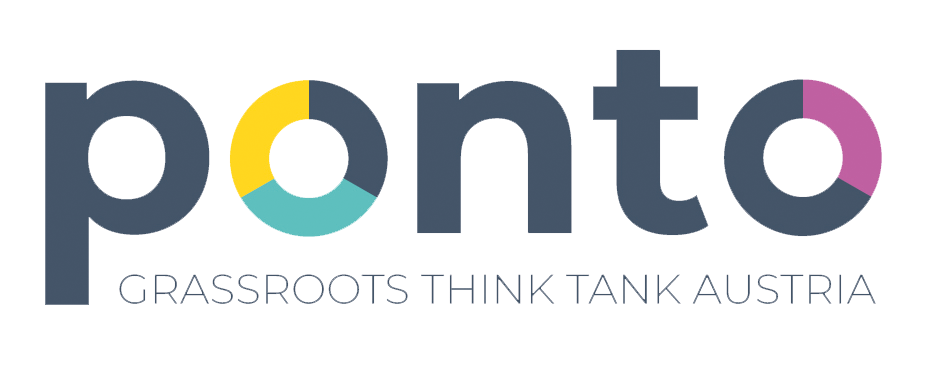After an unsuccessful referendum on the country’s official name in the end of September 2018 that didn’t provide any valid outcome due to a lack of participation, the Macedonian Parliament passed a constitutional law on the country’s name on 19 October 2018. According to this amendment, Macedonia’s official name will change to ‘North Macedonia’. This constitutes a major step forward towards a solution in the conflict with Greece about the official name of the Balkan state, which persist since its independence in 1991. The solution of the long-lasting dispute is not only important for the region itself, but especially for Macedonia’s future at the European level. Despite this, the country also faces the challenge to clear many other obstacles before its accession.
Firstly, the name change from ‘Macedonia’ to ‘North Macedonia’ is not yet legally binding. Also the Greek Parliament has to vote in favour of the deal, which was negotiated by the two prime ministers, Tsipras and Zaev, in June 2018. One may wonder why a name can cause so much tension. The name ‘Macedonia’ is originally linked to an ancient region, which covered not only today’s Republic of Macedonia, but also a modern Greek province with the same name. In the beginning of last week, the tense situation culminated in the resignation of the Greek Minster of Foreign Affairs, who was regarded to be the architect of the compromise. The impact of this dispute on Macedonia’s prospects for EU Membership becomes evident, when looking into the relevant Article 49 of the Treaty of the European Union. The provision lays down that an accession agreement requires ratification by all current member states. In fact, Greece does not only have a possible veto, but is additionally blocking the initiation of the negotiation process. Therefore, the settlement is crucial for any further steps towards the country’s EU accession.
To become a member of the EU, a state must not only be a European country and respect values such as democracy, equality, the rule of law and human rights, but also fulfil certain conditions, which are laid down in the so-called Copenhagen Criteria.[i]These conditions were agreed on by the European Council in 1993 and include a set of political and economic criteria as well as the capacity of a candidate country to implement the current EU legislation and take on the obligations that come with the membership. To assess a candidate country’s progress, the European Commission publishes regularly Reports.[ii]It becomes evident that even though Macedonia is on the right path and generally improving, many difficulties remain. In regards to the political criteria, the use of shortened procedures in Parliament remains a problem for the democratic principle and the independence of the judiciary needs to be strengthened. Furthermore, the prevailing issues of corruption, organized crime, poor prison conditions and the lack of inclusion of minorities need to be tackled efficiently. On an economic level, the large informal economy and the high unemployment rate are pointed out. Hence, the country is said to be only moderately prepared to cope with competitive pressures and market forces within the EU. Therefore, Macedonia needs to work on both its economic and political challenges in the upcoming years.
Apart from the fulfilment of the Copenhagen Criteria on Macedonia’s side, the readiness of the EU for further accession at the moment is also a crucial topic. This of course depends largely on political will. When the current Commission President Juncker laid down his political guidelinesin 2014,[iii]he said that the EU needs to digest its enlargements since 2004 and take a break. Accordingly, the EU negotiators are not exactly in a rush when it comes to further enlargements of the Union. Yet, future developments will most likely not only depend on the position of the new European Commission after the elections in May 2018, but also on the effects of the withdrawal of the United Kingdom in March 2018.
However, even if the Union opens itself for further enlargement, Macedonia is not the ‘first in line’. Even though Montenegro and Serbia became candidate countries after Macedonia, negotiations were opened already in 2012 and 2014 respectively. The two countries got a head start and the Commissioner for Enlargement, Johannes Hahn, considers Montenegro and Serbia to be the next possible Member Statesof the EU.[iv]
To conclude, there are still many hurdles for Macedonia on its way to EU accession, especially regarding the country’s own political and economic development and the EU’s readiness for further enlargement. The change of Macedonia’s name is still an important and necessary step forward. However, unlike the magic spell ‘Open Sesame’ in the Arabian tale of Ali Baba, which opens the gate to a secret treasure store, the new name ‘North Macedonia’ alone will not equally open the gate to the European Union for the country.
Fotocredit: Pixabay
Autor
 Niklas Nigl hat ein Studium der Rechtswissenschaften an der Universität Wien abgeschlossen. Zur Zeit absolviert er einen Master in ‘European Law’ an der Universität Leiden. Niklas Nigl studied Law at University of Vienna and is currently pursuing a Master’s degree in “European Law” at Leiden University.
Niklas Nigl hat ein Studium der Rechtswissenschaften an der Universität Wien abgeschlossen. Zur Zeit absolviert er einen Master in ‘European Law’ an der Universität Leiden. Niklas Nigl studied Law at University of Vienna and is currently pursuing a Master’s degree in “European Law” at Leiden University.
Fotocredit: Yeowatzup
Literaturnachweise
[i]Accession Criteria. European Commission – Enlargement – Accession Criteria. In: Website of the European Commission, 06.12.2016. Available at <https://ec.europa.eu/neighbourhood-enlargement/policy/glossary/terms/accession-criteria_en> (18.11.2018).
[ii]European Commission: Commission Staff Working Document. The former Yugoslav Republic of Macedonia 2018 Report. Accompanying the document Communication from the Commission to the European Parliament, the Council, the European Economic and Social Committee and the Committee of the Regions 2018 Communication on EU Enlargement Policy, 17.04.2018. Available at <https://ec.europa.eu/neighbourhood-enlargement/sites/near/files/20180417-the-former-yugoslav-republic-of-macedonia-report.pdf> (18.11.2018).
[iii]Jean-Claude Juncker, A New Start for Europe. My Agenda for Jobs, Growth, Fairness and Democratic Change, Strasbourg, 15.06.2014. Available at <https://ec.europa.eu/commission/sites/beta-political/files/juncker-political-guidelines-speech_en.pdf> (18.11.2018).
[iv]Hahn: Serbia and Montenegro next countries to join the EU. In: European Western Balkans, 10.01.2018. Available at <https://europeanwesternbalkans.com/2018/01/19/hahn-serbia-montenegro-next-countries-join-eu/> (18.11.2018).

2 Comments. Leave new
,Interesting stuff to read. Keep it up,Great article. Couldn’t be write much better! ,awesom….gives a clear idea,useful information tnx for your post,Nice article thanks for sharing……,nice article,i like ur site.
I do trust all the ideas you’ve introduced to your post. They are really convincing and can certainly work. Still, the posts are very quick for beginners. Could you please lengthen them a little from next time? Thanks for the post.